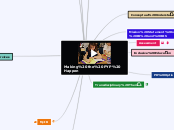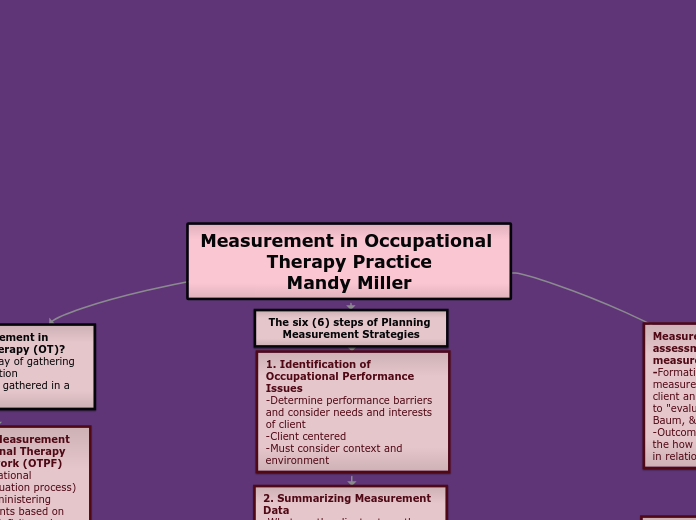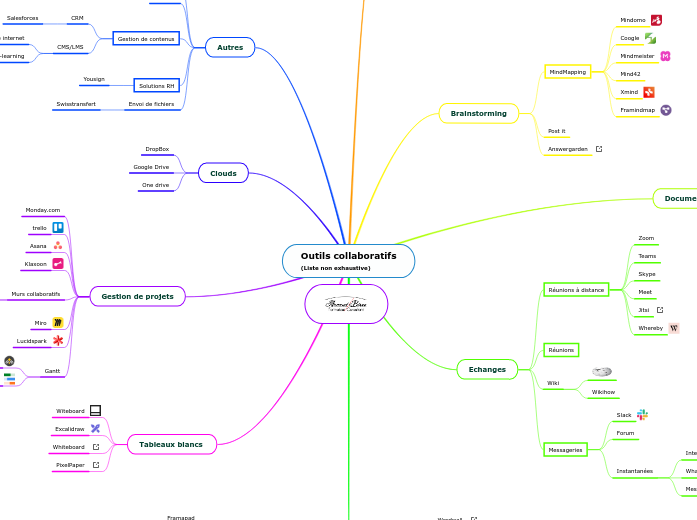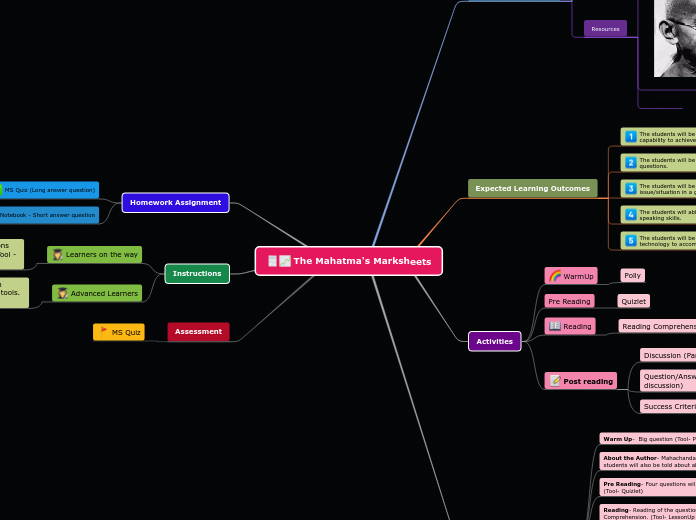Areas we need to improve on
Making the PYP Happen
New Changes to PYP
Unit Planner Title to be removed
Concepts will be going from 8 to 7
Action to be more described
Skills --> Approaches to learning
Schools can add sub skills
No more attitudes
Risk-takers --> Courageous
Dropping Reflective
MyIB
IB Answers
when logged in there are questions that have been previously answered.
Ask a question
- automated response sent back in 3 days
- if not super simple, there will be an answer sent in 6 days-2 weeks
- if this has not happened, send a follow up email
Curriculum Framework
Blogs
Videos
Useful Online Services
Other Online Services
irubric
prezi
powtoon
doodle
bubbl
timegraphics
padlet
canva
mindomo
google sites
google classroom
Used in meeting
Blog About Learning
If blog does not work, her writing can be found on twitter as well.
Famous for writing about whether we should provide students with a central idea or if we should ask them at the end of the unit.
Twitter
Once a week there is an hour long collaborative session under #PYPchat.
There is also:
- photos
- blogs
- ideas
- helpful hints
- inspiration
PE Blog
Kahoot
nearpod
Our Learning Experiences
Primary school = emotion and feeling
Highschool = short term memorization
Single Stories
Based off a person's knowledge
Mindfulness
Beliefs on Teaching
International Mindedness
Teaching units on food, dress, and holidays promotes single stories and does not actually encourage students to think about other perspectives.
Sharing with colleagues
Transdisciplinary Themes
- Who We Are
- Where We Are In Place And Time
- Sharing the Planet
- How the World Works
- How We Organize Ourselves
- How We Express Ourselves
Actions
- Choose
- Act
- Reflect
Skills
- Thinking
- Social
- Self Management
- Research
- Communication
Time Spent on UOI vs SAU
Stand-alone vs UOI teaching time
- Meaningful connection
- Science and Social Studies completely within UOI for now (this is changing soon)
- Math has more stand-alone time
- No decoration on Units (no pushing) should be done
- Don't do an activity related to the topic simply to stay on topic
- Singing about animals vs creating a song with animal sounds
- Should contribute to the understanding of the central idea
Subject Areas tied into the themes
Learner Profiles
- Inquirer
- Open-Minded
- Caring
- Knowledgeable
- Thinker
- Risk-Taker
- Communicator
- Balanced
- Principled
- Reflective
Which are important (matter of opinion)
How are they represented in different areas of the school?
Local requirements need to be tied to themes
Central Ideas can be changed
Central Idea
- Subject specific content needing to be covered
- Key concepts that are tied to the content
- Written as one sentence
- Neutral voice
- Invite inquiry
- Globally Significant
- Relevant to themes
- Based off what Government says needs to be covered and when it needs to be covered
- Picked by school
- Leads to lines of inquiry
PD Options
- In school (category 1)
- On-line
- Face to face (go to site of meeting)
- Cluster (a few schools decide to train together)
Category 3
Possible topics:
- subject specific
- bilingual and multilingual learning
- special education
- early years
usually completed online or go to location (requires a minimum of 10 people at a site to be held)
Category 2
Possible topics:
- Concepts
- planning
- exhibition
- assessments
Aspects of PYP
Online/ go to site (requires 10 people at school to be done)
Category 1
intro to pyp
required for authorization
Webinar
Upcoming changes
Announced on IB website
Harvard Project Zero
Inclusive Education
No current department
Search IB Forums
Assessment
- Types of Assessment
- For learning
- ongoing, formative
- informs teaching and learning process
- chance to give feedback
- As Learning
- students reflecting and monitoring progress
- provides feedback from peers as well
- Of Learning
- summative assessed against criteria
- Sharing Assessments in a cross curricular/grade can be valuable for teacher feedback
- IB does not provide examples/requirements
- Assessment task should be prepared for in the activities
Prior Knowledge
- Different ways of assessing this
- Beyond Brainstorming
Reports/Meetings
Teacher Checklist:
- 2 Learner Profile Traits
- Maths
- English
Student Led:
- Once a year
- Teacher's not involved except for taking notes
- Portfolios displayed
- Students and parents are prepared
- What it is about
- What questions to be asked
- Not "What is your best work?"
- What is difficult, what is your greatest achievement, what did you improve one?
Teacher/Parent:
- Student can be involved in this "Three-way"
- Twice a year
- Usually beginning of year to set goals
- End of the year to discuss if goals have been met
- Agreement is made and signed. This lists out steps and support that will be given at home and school.
- Very lengthy in time
Student/Teacher:
- Summative assessment one-on-one meetings with students
- About 3 minutes in length
Feedback
- Can be peer feedback
- Should be specific and helpful
- 5 Tools to make PYP Happen:
- Notes/photos/videos
- Checklists
- Rubrics
- No guidelines from the IB
- Continuum
- Created by all teachers in school so that the same "subject" is assessed at different levels in each year group
- Exemplars
- Show (doesn't have to be a perfect piece) and discuss (strengths and things to change; criteria).
Inclusive
Focus on:
- Must
- Should
- Could
Can be differentiated by ability to make it flexible for student developmental levels
- Task can be the same but way to present can be different
- Criteria could be completely different depending on ability of child
Criteria
- Can be student created
- Needs to give specifications
Mission Statement of the IB and BIS
IB Mission Statement
The International Baccalaureate® aims to develop inquiring, knowledgeable and caring young people who help to create a better and more peaceful world through intercultural understanding and respect.
To this end the organization works with schools, governments and international organizations to develop challenging programmes of international education and rigorous assessment.
These programmes encourage students across the world to become active, compassionate and lifelong learners who understand that other people, with their differences, can also be right.
Pre3 can link to P1
What can Preschool 3 do to prepare for primary 1?
P6 can link to MYP1 to help with transition
What skills are expected in MYP 1? How can P6 help prepare them for these skills?
Differences
Similarities
Conceptual Understanding
Questions and Provocations
Questions:
- Open ended (add why to yes/no)
- discussion provoking
- revisited to add new understanding (asked again throughout the unit with expanding/changing answers)
- could lead to new questions
- variety of perspectives
- higher order thinking
- conceptual
- All Key Concepts, Lines of Inquiry, and Central Idea is addressed
- time limitations
- activities need to allow children to answer these questions
Provocations:
- At the beginning of the unit
- be careful of children who have special needs or might have negative reactions to this process
- Not have teachers tell students to look at picture what do you think but put pictures of many things and allow students to see them on their own and discuss when they happen to see them (could take days).
- Student initiated reaction. Not teacher initiated reaction
Lines of Inquiry
- Not a list
- Not central idea rephrased
- Identified in order
- Not questions
- Develop understanding through a variety of perspectives
Unit Planners
- Backwards planning (start with assessment so that finish line is identified and to verify central idea is a good idea)
- Plan for a tool
- 10% change each year is average/normal change
Meet 3 times when unit planning
Part 5 needs to be more thorough
- Instead of books list the books
- Give exact links
- Give names of guest speakers and details
- List information for field trips and how to set them up
- Provide all information a future teacher will need
- Title of video, link, director name, etc
Part 3 should not introduce a new concept
Drop the title because it limits the connection
Need to include not just days/weeks but also hours
Part 4: How Best We Learn needs to be elaborated
- Using a table to show what activities will be done each week can be helpful for this part.
- Describe learning engagements so a future teacher can understand it.
- describe activities and not just provide names.
- be precise
Inquiry
- exploring, wondering and questioning
- experimenting and playing with possibilities
- making connections between previous learning and current learning
- making predictions and acting purposefully to see what happens
- collecting data and reporting findings
- clarifying existing ideas and reappraising perceptions of events
- deepening understanding through the application of a concept
- making and testing theories
- researching and seeking information
- taking and defending a position
- solving problems in a variety of ways.
- Could use a table with lines of inquiry to help sort tasks.









